- Taking a step towards self-walking robotic exoskeletons
- Indigenous Speakers Series is back this Thursday
- A competitive edge for Waterloo engineering students
Editor:
Brandon Sweet
University Communications
bulletin@uwaterloo.ca
Taking a step towards self-walking robotic exoskeletons
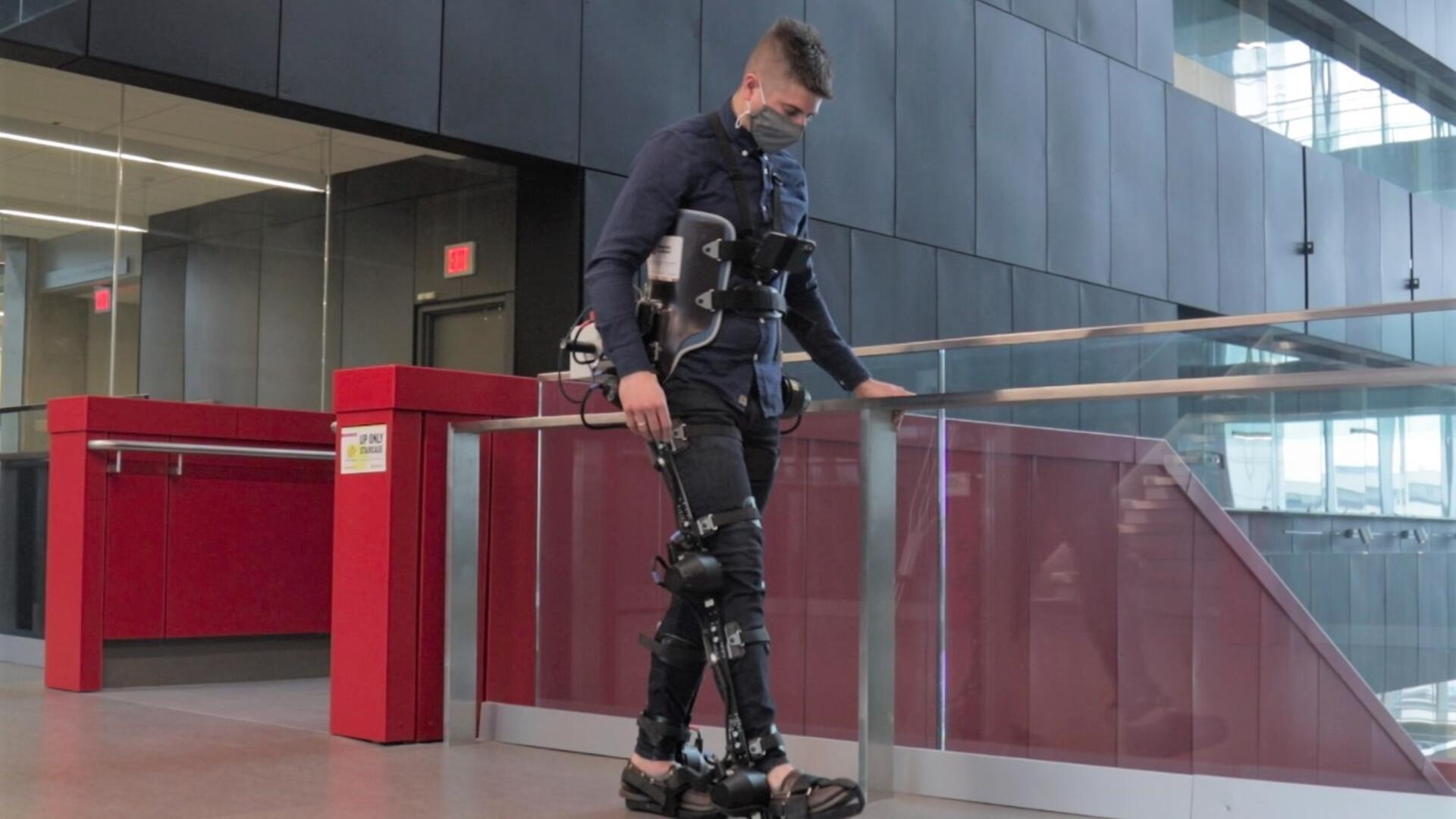
By Angelica Marie Sanchez. This article was originally published as part of the Global Impact Report.
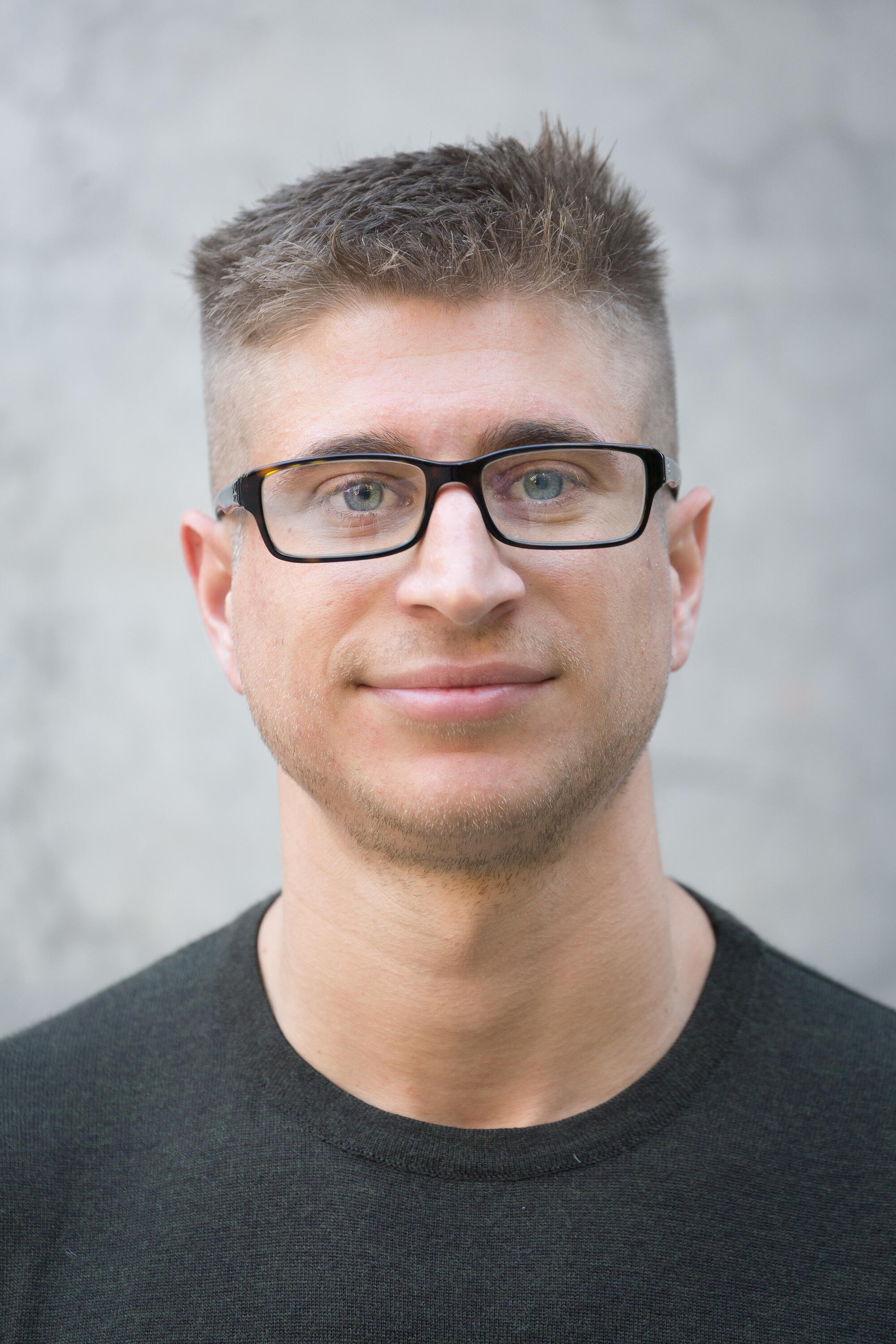
Brokoslaw Laschowski is using his interdisciplinary education — spanning four academic degrees — as a toolkit to integrate robotics technology with rehabilitation medicine. While pursuing his master’s degree in Mechanical Engineering, Laschowski decided to intersect his passion for human biomechanics and engineering design by working with Team Canada wheelchair athletes as a researcher in Paralympic sports.
“I gained a deep appreciation for the awesome capabilities of individuals with different physical disabilities,” Laschowski says. “It was inspiring because here you have athletes that are not only performing at the highest level of sport, but also overcame significant sociocultural and physical barriers.”
Working with Paralympic athletes gave Laschowski the opportunity to study the engineering design and optimization of wheelchairs using mathematical models and computer simulations, with support from his supervisor Dr. John McPhee. His master’s research on high-performance wheelchairs led to his work on wearable exoskeletons that assist activities of daily living for his doctoral degree in Systems Design Engineering, again supervised by McPhee.
“I started to learn about the limitations in exoskeleton technology and where there is room for improvement,” Laschowski says. “Although these devices are promising, we don’t yet really see wearable robots being used in the real world.”
Bridging health sciences and engineering to create wearable exoskeletons
Laschowski addressed these limitations by developing ExoNet, a wearable system that combines computer vision and deep learning artificial intelligence (AI) for autonomous exoskeleton control. The development allows the robot to think and control itself without human intervention.
Until now, wearable robots operated by motors had to be manually controlled by a person using a smartphone application or joystick to select the desired locomotor activity.
“The purpose of our research is to alleviate the cognitive burden of having users to think and control the robot,” Laschowski says. “The wearable camera senses the state of the environment in real -time. Those images are then automatically processed and classified using an AI algorithm to not only recognize stairs and other walking terrains, but also predict the next movement while avoiding physical obstacles in the environment.”
“My PhD research also focused on the development of lightweight exoskeletons with energy-efficient actuators. Using efficient motor technology allows for lightweight batteries that work for longer periods while drawing less power,” says Laschowski, also a member of the Waterloo Artificial Intelligence Institute (Waterloo.ai).
Creating the dream team of robotics researchers
The University of Waterloo is home to 74 Canada Research Chairs who are experts in their respective field pursuing groundbreaking research. As a PhD student, Laschowski recalls having the unique opportunity to work alongside two Canada Research Chairs who are also professors in the Department of Systems Design Engineering — Dr. John McPhee, Canada Research Chair in Biomechatronic System Dynamics, and Dr. Alexander Wong, Canada Research Chair in Artificial Intelligence and Medical Imaging.
“It is an absolute honour to work with two Canada Research Chairs and that we created this dream team at Waterloo,” says Laschowski, who leads the ExoNet project in collaboration with William McNally, also a PhD candidate in Systems Design Engineering and a member of Waterloo.ai.
Laschowski recalls the moment when the AI algorithm started learning on his laptop computer after many iterations of the machine learning system. After feeling excited to witness the system teach itself over time, he remains positive that it could one day translate to support clinical testing.
“The success of this research project suggests that we’ve identified something really meaningful,” he says. “We were one of the first groups to pursue this research area back in 2018. Now our open-source image database is helping create a global impact on the international research community. Researchers across the world are developing new control algorithms for these wearable assistive technologies, for which our system can help advance.”
Laschowski completed his PhD in 2021 and will continue developing robotic exoskeleton technologies as a researcher at the Toronto Rehabilitation Institute and the University of Toronto.
“One day I could be seeing somebody walking down the street using a wearable robot and I think to myself — the dream team at Waterloo, we actually helped create that.”
Indigenous Speakers Series is back this Thursday
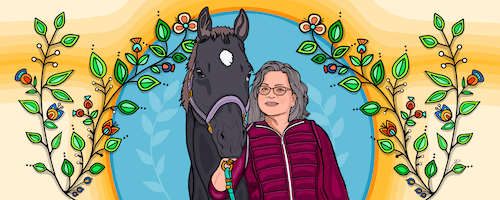
A message from the Faculty of Arts.
The organizers of the Indigenous Speakers Series are honoured to present Lenore Keeshig, naturalist, storyteller, poet, and author.
Happening this week, Thursday, March 31 at 4:00 p.m. in Theatre of the Arts, this will be the first in-person event for the series in more than two years. All are welcome to join in the theatre or via live streaming.
Lenore Keeshig is a citizen of the Chippewas of Nawash Unceded First Nation. She is a traditional storyteller, poet and author, living at Neyaashiinigmiing on the Saugeen (Bruce) Peninsula. She works as a naturalist, providing education programs about the natural and cultural history of the Saugeen/Bruce Peninsula and the Great Lakes. Lenore’s poetry has appeared in a number of anthologies. She has produced three children’s books: Bird Talk (1991), Emma and the Trees (1996), and The Truth About Nibbles (2005) co-authored with her husband, David McLaren. She is the recipient of the Living the Dream Book Award (1993) and an Author’s Award (1988).
Lenore will speak about her work and experiences as a geologist. Following her talk, she will be joined by Robin Stadelbauer of the Office of Indigenous Relations and a student for conversation and audience questions.
The Indigenous Speakers Series has been running since 2017 and is organized by a group of Indigenous and settler faculty, staff, and students from the Waterloo Indigenous Student Centre (WISC), the Dean of Arts Office, the departments of History and Communication Arts, the Office of Indigenous Relations, and the Office of Research. The series is co-sponsored by WISC and the Faculty of Arts with the support of donors to the Arts Indigenous Initiatives fund.
Find more information about the March 31 event and how to join.
A competitive edge for Waterloo engineering students
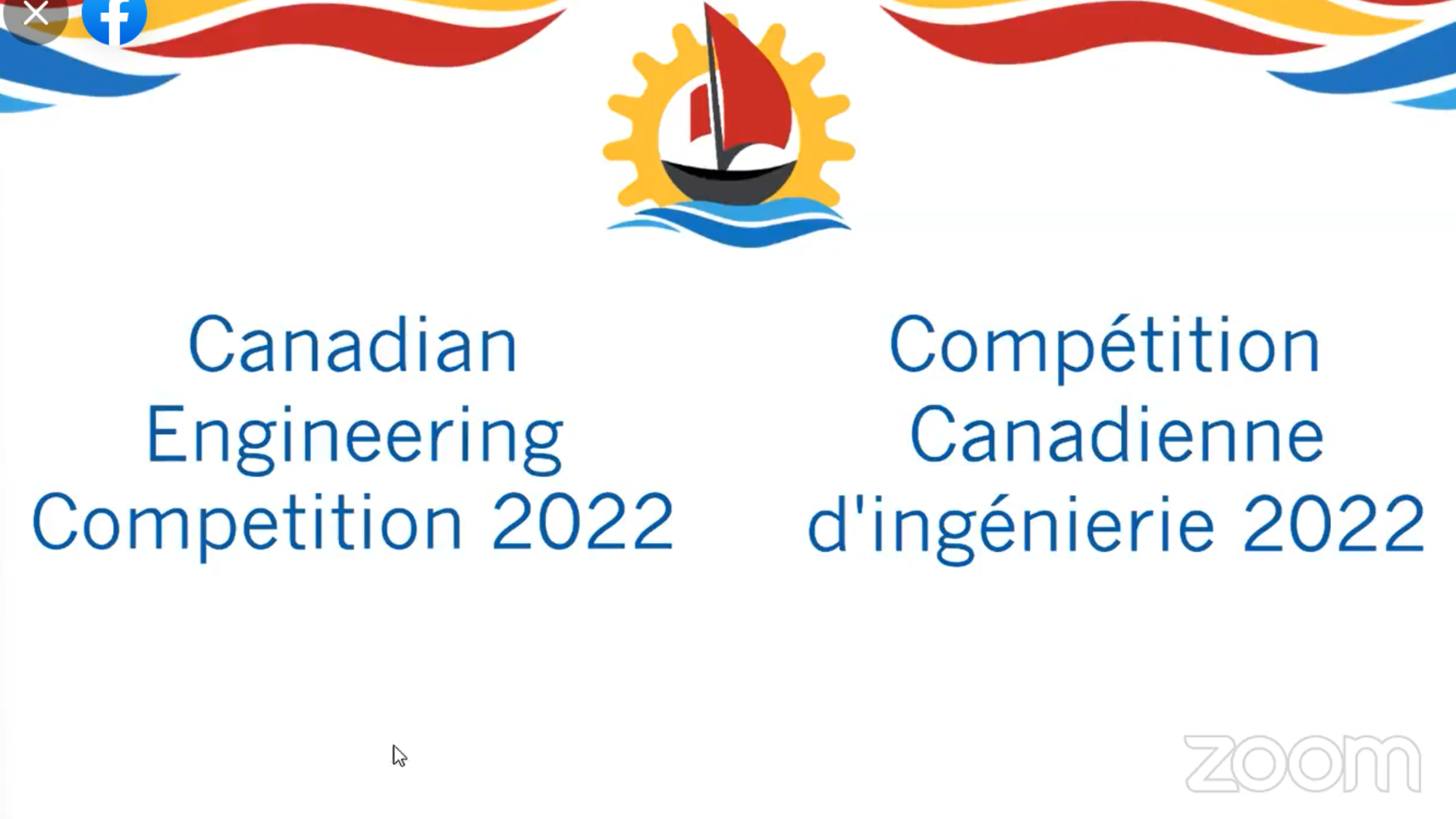
By Carol Truemner. This article was originally published on Waterloo News.
Demonstrating their impressive engineering design and debating skills, Waterloo Engineering students won the most first-place awards of any school participating in this year’s Canadian Engineering Competition (CEC).
Undergraduate teams captured three top prizes and one third-place finish in the remote competition hosted by the University of New Brunswick this month.
Junior Design win
First-year mechatronics engineering students impressed judges with their take on a flood-proofing system winning first in CEC’s Junior Design category.
Simon Gorbet, Alyzen Jeraj, Phoebe Luo and Andy Meng came up with an innovative concept for a series of modular flood barriers capable of protecting homes.
"The competition allowed us to explore a wide range of skills like design, prototyping, engineering and marketing while forcing us to face various challenges and overcome obstacles during the competition," says Meng.
Strong, scalable, reusable
Team members worked toward creating a strong, scalable and reusable product that improves on existing solutions and could potentially be brought to market and benefit millions.
“Using the skills we learned in class such as 3D modelling and component selection, we created something that was not only viable on a subscale prototype but could be used in real life,” says Meng.
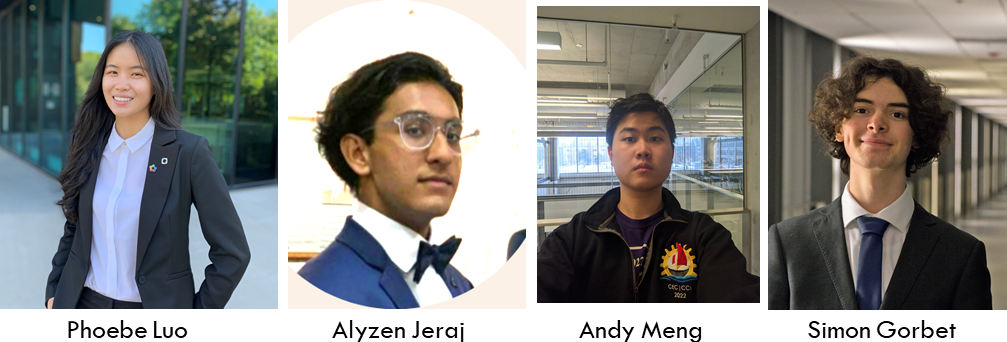
Phoebe Luo, Alyzen Jeraj, Andy Meng, and Simon Gorbet.
Innovative Design win
Four biomedical engineering students earned top prize in the Innovative Design category.
Cesar Enrique Genatios, Ankit Jain, Simona Rocco and Laura Zhukas came up with a CAD design for a handheld device with an accompanying mobile app that measures electrocardiogram signals to detect whether a patient has suffered from a myocardial infarction, commonly known as a heart attack.
Timely diagnosis of myocardial infarction is critical as the risk of mortality increases by 7.5 per cent for every 30-minute delay in treatment, says Rocco.
She describes the team’s winning model as portable and low-cost, making it accessible to low-and middle-income countries which have disproportionately higher incidence and mortality rates of myocardial infarction and often lack the necessary diagnostic tools.
Tackling a real-world problem
Rocco says the CEC award is a testament to the strong engineering and design skills team members have gained from Waterloo’s biomedical engineering program.
“It is also a reflection of how well our education has enabled us to tackle real-world problems with impactful engineering solutions to effect positive change,” says Rocco, whose team also won the WR Petrie Engineering Design Award.
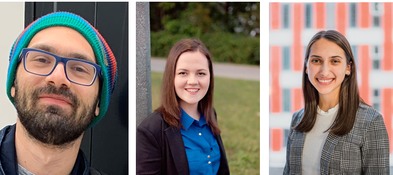
Cesar Enrique Genatios, Laura Zhukas, Simona Rocco and Ankit Jain.
Re-engineering win
Second-year management engineering students Omar Atwa and Omkaar Kamath achieved a first-place finish in CEC’s Re-engineering category in which participants redesigned an existing product or process to either improve functionality or to adapt it for a new purpose.
The two cases Atwa and Kamath were given to re-engineer involved using trash such as plastic and other materials to design something practical.
“The first case required that we construct a structure that would attract tourists and give back to the community using old shipping containers and wind turbines,” he explains.
Instead of designing something fancy, the team members decided to build a simple park.
"Our case however was very detailed - it contained everything from detailed park schematics to park manager salaries and how this park will meet the case goals,” says Atwa.
A meaningful victory
Taking top prize in the CEE’s Re-engineering category was particularly meaningful for the two men after not placing in the seven competitions they entered throughout their first year.
“We did not come close to winning any but we learned at every step,” says Atwa. “I guess the lesson here is that the more times you fail the more likely you'll succeed if you keep trying.”
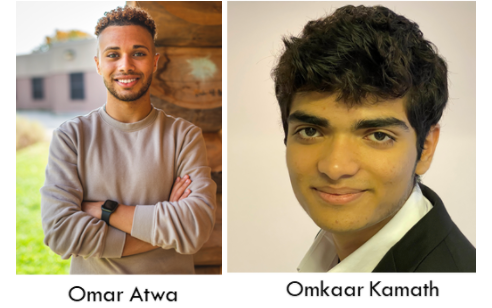
Omar Atwa and Omkaar Kamath.
Extemporaneous Debate win
Sean Ashley and Anson Yu, both systems design engineering students, and Ella Uppal, a computer engineering student, took third place in CEC’s Extemporaneous Debate category.
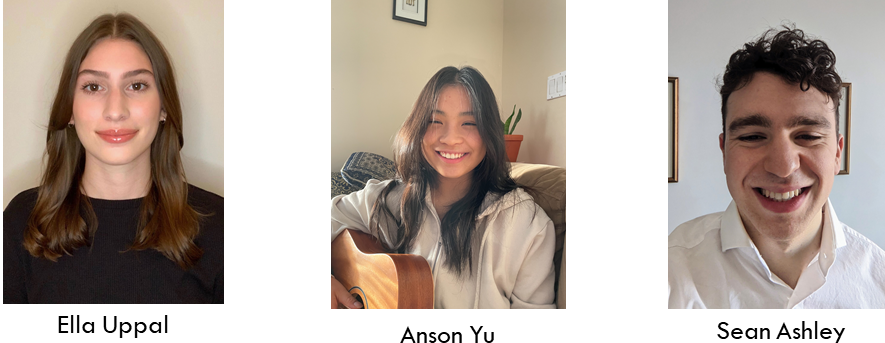
Ella Uppal, Anson Yu, and Sean Ashley.
The annual CEC brings together over 200 undergraduate students from across Canada who placed in the top two positions of their provincial or regional competitions. Next year's CEC will be hosted by Waterloo Engineering.
Link of the day
"Hup!" A history of that 'jump' sound in video games
When and Where to get support
Students can visit the Student Success Office online for supports including academic development, international student resources, immigration consulting, leadership development, exchange and study abroad, and opportunities to get involved.
Instructors looking for targeted support for developing online components for blended learning courses, transitioning remote to fully online courses, revising current online courses, and more please visit Agile Development | Centre for Extended Learning | University of Waterloo (uwaterloo.ca).
Instructors can visit the Keep Learning website to get support on adapting their teaching and learning plans for an online environment.
Course templates are available within your course in LEARN to help you build and edit your content and assignment pages quickly.
The following workshops, webinars, and events are offered by the KL team (CTE, CEL, ITMS, LIB):
- Independent Remote Course Design Essentials, self-directed, continuous self-enrollment course in LEARN.
- Independent Blended Course Design (iBlend), self-directed, ongoing
- Copyright Overview for Waterloo Instructors and Staff - self-directed, continuous self-enrollment course in LEARN.
- Integrating PebblePad Retreat (IPR) - Setting up your Spring PebblePad Assignments and Activities (CTE7531), Monday, April 4, 1:00 p.m. to 4:00 p.m.
Supports are available for employees returning to campus. Visit IST’s Hybrid Work and Technology guidelines and workplace protocols to assist with the transition.
The Writing and Communication Centre has virtual services and programs to help undergrads, grad students, postdocs and faculty members with academic writing.
- Meet with writing advisors in one-to-one appointments to brainstorm, draft, revise, and polish. No time for an appointment? Try email tutoring for undergrads.
- Beat isolation and make writing progress at weekly Virtual Writing Cafés for grad students and faculty or PJ-Friendly Writing Groups for Undergrads.
- Take an online workshop or apply to our popular Dissertation Boot Camp program.
- Faculty can request custom in-class workshops for their courses, or the WCC can facilitate any existing workshops for student groups.
- Course-integrated support available. Attention faculty and instructors: The application form for Writing and Communication Centre course-integrated support is now available online. We offer five unique support streams for your courses including synchronous and asynchronous workshops and monitored discussion boards.
Co-op students can get help finding a job and find supports to successfully work remotely, develop new skills, access wellness and career information, and contact a co-op or career advisor.
The Centre for Career Action (CCA) has virtual services and programs to support undergrads, grad students, postdocs, alumni and employees in figuring out what they value, what they’re good at, and how to access meaningful work, co-op, volunteer, or graduate/professional school opportunities. Questions about CCA's services? Live chat, call 519-888-4047, or stop by our front desk in the Tatham Centre between 8:30 a.m. and 4:30 p.m. EST, Monday to Friday.
Drop-in to Warrior Virtual Study Halls on Wednesdays from 5:30 p.m. to 7:00 p.m. Come together in this virtual space to set goals and work independently or in groups each week.
Renison's English Language Institute continues to offer virtual events and workshops to help students practice their English language skills.
If you feel overwhelmed or anxious and need to talk to somebody, please contact the University’s Campus Wellness services, either Health Services or Counselling Services. You can also contact the University's Centre for Mental Health Research and Treatment. Good2Talk is a post-secondary student helpline available to all students.
The Library is open with expanded hours for access to book stacks, drop-in individual study space, bookable group study rooms, drop-in access to computers and printers, book pick-up services and IST Help Desk support. Librarian consultations, Special Collections & Archives and the Geospatial Centre are available by appointment. Full details on current services and hours are available on the Library’s COVID-19 Update webpage.
The Faculty Association of the University of Waterloo (FAUW) continues to advocate for its members. Check out the FAUW blog for more information.
The University of Waterloo Staff Association (UWSA) continues to advocate for its members. Check out the UWSA blog for more information.
The Sexual Violence Prevention and Response Office (SVPRO) supports all members of the University of Waterloo campus community who have experienced, or been impacted, by sexual violence. This includes all students, staff, faculty and visitors on the main campus, the satellite campuses, and at the affiliated and federated Waterloo Institutes and Colleges. For support, email: svpro@uwaterloo.ca or visit the SVPRO website.
The Office of Indigenous Relations is a central hub that provides guidance, support, and resources to all Indigenous and non-Indigenous campus community members and oversees the University's Indigenization strategy.
The Waterloo Indigenous Student Centre, based at St. Paul’s University College, provides support and resources for Indigenous students, and educational outreach programs for the broader community, including lectures, and events.
WUSA supports for students:
Peer support - MATES, Glow Centre, RAISE, Women’s Centre - Visit https://wusa.ca/peersupport to book an appointment either in person or online for the Fall term.
Food Support Service food hampers are currently available from the Turnkey Desk 24/7 in the Student Life Centre. Drop off locations are also open again in SLC, DC, DP, SCH and all residences.
Co-op Connection all available online. Check https://wusa.ca for more details.
Centre for Academic Policy Support - CAPS is here to assist Waterloo undergraduates throughout their experience in navigating academic policy in the instances of filing petitions, grievances and appeals. Please contact them at caps@wusa.ca. More information is available.
WUSA Student Legal Protection Program- Seeking legal counsel can be intimidating, especially if it’s your first time facing a legal issue. The legal assistance helpline provides quick access to legal advice in any area of law, including criminal. Just call 1-833-202-4571.
Empower Me is a confidential mental health and wellness service that connects students with qualified counsellors 24/7. They can be reached at 1-833-628-5589.
GSA-UW supports for graduate students:
The Graduate Student Association (GSA-UW) supports students’ academic and social experience and promotes their well-being.
Advising and Support - The GSA advises graduate students experiencing challenges and can help with navigating university policies & filing a grievance, appeal, or petition.
Mental Health covered by the Health Plan - The GSA Health Plan now has an 80 per cent coverage rate (up to $800/year) for Mental Health Practitioners. Your plan includes coverage for psychologists, registered social workers, psychotherapists, and clinical counselors.
Dental Care - The GSA Dental Plan covers 60 to 70 per cent of your dental costs and by visiting dental professionals who are members of the Studentcare Networks, you can receive an additional 20 to 30 per cent coverage.
Student Legal Protection Program - Your GSA fees give you access to unlimited legal advice, accessible via a toll-free helpline: +1-833-202-4571. This advice covers topics including housing disputes, employment disputes, and disputes with an academic institution.
The Graduate House: Open Monday to Friday 11:30 a.m. to 6:00 p.m. We’re open to all students, faculty, staff, and community members. The Graduate House is a community space run by the GSA-UW. Vaccination Records and Government ID continue to be required for all dine-in guests. Graduate students who paid their fees can get discounts and free coffee.
When and Where (but mostly when)
Warriors vs. Laurier Blood Donation Battle. Join our “Waterloo Warriors” team on the Blood.ca website or app. #ItsInYouToGive
Half Price Fitness Memberships and Rock Climbing Memberships. Only $25 for the remainder of the term. Purchase your membership now.
Warriors truLOCAL Kickback Program, March 22 to April 22. Purchase high quality locally sourced meat and fish while supporting your favourite Waterloo Warriors varsity team. Find out more.
NEW - WaterLeadership training seminar: Canadian Water Policy 101 for Researchers Who Want to Get Engaged, presented by Anastasia M. Lintner, Co-founder & Chief Operations Officer, Backloop Institute. Tuesday, March 29, 1:00 p.m.
Quantum Valley Investments Problem Pitch Competition, Tuesday, March 29, 5:30 p.m.
Master of Taxation, Virtual Information Session, part-time info session, Thursday March 31, 1:00 p.m., full-time info session, Thursday March 31, 2:00 p.m. To register visit, www.mtax.ca.
PJ-Friendly Writing Groups for Undergrads, Thursday, March 31, 2:00 p.m.
Indigenous Speakers Series presents Lenore Keeshig, Thursday, March 31, 4:00 p.m.
Concept $5k Finals, Thursday, March 31, 5:00 p.m.
UW OER Fellows Grant Program submission deadline, Friday, April 1.
NEW - Global Engagement 2022 Desmarais Family Summit: Water in the World, Monday, April 4, 6:00 p.m.